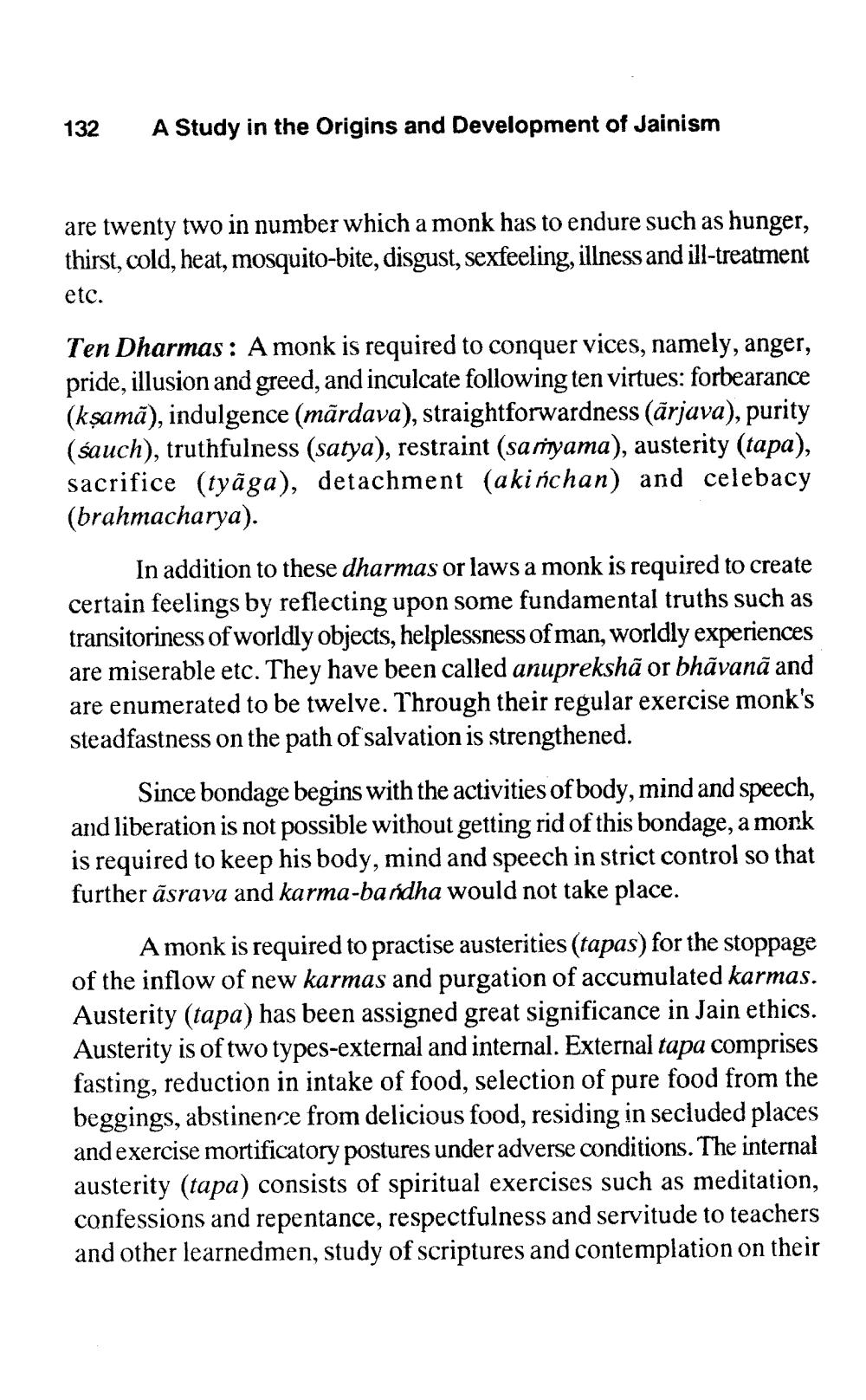________________
132
A Study in the Origins and Development of Jainism
are twenty two in number which a monk has to endure such as hunger, thirst, cold, heat, mosquito-bite, disgust, sexfeeling, illness and ill-treatment
etc.
Ten Dharmas: A monk is required to conquer vices, namely, anger, pride, illusion and greed, and inculcate following ten virtues: forbearance (kṣamā), indulgence (mãrdava), straightforwardness (ārjava), purity (sauch), truthfulness (satya), restraint (samyama), austerity (tapa), sacrifice (tyaga), detachment (akińchan) and celebacy (brahmacharya).
In addition to these dharmas or laws a monk is required to create certain feelings by reflecting upon some fundamental truths such as transitoriness of worldly objects, helplessness of man, worldly experiences are miserable etc. They have been called anuprekshã or bhāvanā and are enumerated to be twelve. Through their regular exercise monk's steadfastness on the path of salvation is strengthened.
Since bondage begins with the activities of body, mind and speech, and liberation is not possible without getting rid of this bondage, a mork is required to keep his body, mind and speech in strict control so that further asrava and karma-bandha would not take place.
A monk is required to practise austerities (tapas) for the stoppage of the inflow of new karmas and purgation of accumulated karmas. Austerity (tapa) has been assigned great significance in Jain ethics. Austerity is of two types-external and internal. External tapa comprises fasting, reduction in intake of food, selection of pure food from the beggings, abstinence from delicious food, residing in secluded places and exercise mortificatory postures under adverse conditions. The internal austerity (tapa) consists of spiritual exercises such as meditation, confessions and repentance, respectfulness and servitude to teachers and other learnedmen, study of scriptures and contemplation on their




